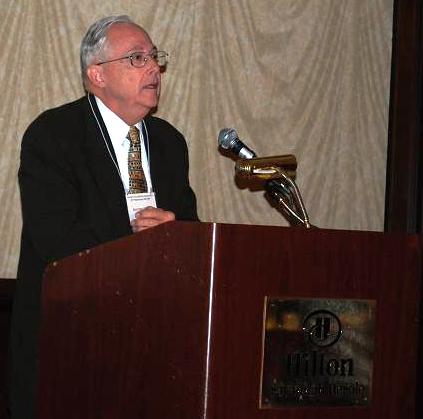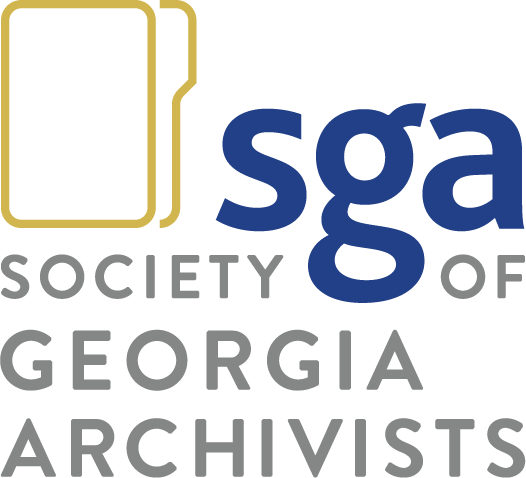
SGA awards a $350 prize that recognizes a superior contribution for each issue of Provenance. The award began in 1990 with Volume VIII and is judged by the Editorial Board. For more detailed information about the award, please visit the SGA Administrative Handbook.
Named for David B. Gracy II, an early leader of the Society of Georgia Archivists. Dr. Gracy came to Georgia in 1971 as Archivist for Georgia State University’s Southern Labor and University Archives, a department he helped to cultivate to its current status as one of the leading collections of organized labor history in the South. During his six years in Georgia, Dr. Gracy made a tremendous impact on the archives profession: he was instrumental in establishing the Southern Labor Studies Conference; was appointed by Governor George Busbee to serve on the 1976 State Historical Records Advisory Board of Georgia; served as the third President of this organization from 1972-1974; was founding editor of Provenance (then Georgia Archive); and for twelve years taught “Introduction to Archival Enterprise” at the Georgia Archives Institute. Following his time in Georgia, Dr. Gracy went on to become Director of Archives at Texas Tech and State Archivist of Texas. He served as President of the Society of American Archivists, the Academy of Certified Archivists, and Austin Archivists. He was also a Fellow of the Texas State Historical Society and President of the Austin Chapter of the Association of Records Managers and Administrators. Dr. Gracy passed away on September 26, 2020 in Austin, Texas. The Society of Georgia Archivists is grateful to Dr. Gracy for his crucial early work in support of the Society and is deeply saddened by the loss of such a powerful force in the archives profession. We invite you to read our complete Statement on the Passing of Dr. David B. Gracy II.
In 2020, the Society of Georgia Archivists and Provenance editorial boards presented an additional prize: the David B. Gracy, II Legacy Award. This one-time $500 prize serves as a tribute to Dr. Gracy's extraordinary impact by honoring a article with enduring relevance to the field. Library and archives educators from across the country provided feedback as part of the selection process.
Pictured to the right is David B. Gracy II, the keynote speaker at SGA's 40th Anniversary Celebration and Conference in Savannah, Georgia. Image taken by James Yancey, Jr.
Recipients:
| 2024 |
Tina Mason Seetoo and Christine S. Wiseman, "Building Resilience: Three Decades of Cultural Heritage Emergency Preparedness and Response in Georgia" |
| 2023 |
Autumn Johnson and Ann Merryman, “Managing Sustainability and Scalability with Successful Archival Projects: Two Lone Arranger, Dual Role Archivists Case Studies” |
| 2021/2022 |
Colin Post and Kassidy Hof-Mahoney, "The Pandemic at Home: Learning from Community-engaged Covid-19 Documentation Efforts in the Southeastern US" |
| 2020 |
Gracy Legacy Award
Jeremy Brett and Jasmine Jones, Persuasion, Promotion, Perception: Untangling Archivists' Understanding of Advocacy and Outreach
|
| 2019/2020 |
Sarah Carlson, Chain of Custody: Access and Control of State Archival Records in Public-Private Partnerships
|
| 2017 |
Justin Kovar, From Basement Storage to Online Access: Processing and Digitizing the Mathematical Association of America General Mathematics Film Production Elements
|
| 2015 |
Christine Wiseman and Alfred S. Matthews, Time, Money and Effort: A Practical Approach to Digital Content Management
|
| 2014 |
Matt Gorzalski, Reimagining Record Groups: A Case Study and Considerations for Record Group Revision
|
| 2013 |
Traci JoLeigh Drummond, No Competing Claims: The Seizure, Abandonment, and the Acquisition of PATCO Records
|
| 2012 |
Emily Gainer and Michelle Mascaro, Faster Digital Output: Using Student Workers to Create Metadata for a Grant Funded Project
|
| 2011 |
Gregory Schmidt and Michael Law, Functional Analysis and the Reappraisal of Faculty Papers: A Practical Application
|
| 2010 |
Melanie Griffin, Postmodernism, Processing, and the Profession: Towards a Theoretical Reading of Minimal Standards
|
|
2009
|
Gregory Schmidt and Michael Law, Functional Analysis and the Reappraisal of Faculty Papers
|
| 2008 |
Cheryl Beredo, Archival Allegory? Cultural Studies and T.R.
Schellenberg’s Modern Archives: Principles and Techniques
|
|
2007
|
Sheila McAlister, Designing a Preservation Survey: The Digital Library of Georgia
|
|
2006
|
Laura Botts and Lauren Kata, Are the Digital Natives Restless? Reaching out to the Ne(X)t Generation and Catherine Stollar Peters, When Not All Papers Are Paper: A Case Study in Digital Archivy
|
|
2005
|
Patricia A. Nugent, Battlefields, Tools, and Targets: Archives and Armed Conflict
|
|
2004
|
Lisa Speer and Heather Mitchell, The Mississippi Plan: Dunbar Rowland and the Creation of the Mississippi Department of Archives and History
|
|
2003
|
Robert J. Jakeman, Marie Bankhead Owen and the Alabama Department of Archives and History, 1920-1955
|
|
2002
|
Mark Greene, What Were We Thinking?: A Call to Embrace Reappraisal and Deaccessioning
|
|
2000-2001
|
Kristine M. Wirts, Regional Archives in France and Challenges for the American Researcher
|
|
1999
|
Nancy Richard and Joan Krizack, Preserving the History of Boston's Diversity
|
|
1998
|
Martin T. Olliff, Documenting Industry and Labor in Alabama: Can a Documentation Strategy Model Work?
|
|
1997
|
Gloria Meraz, Cultural Evidence: On the Common Ground between Archivists and Museologists
|
|
1996
|
Charles R. Schultz, Personality Types of Archivists
|
|
1995
|
James O'Toole, The Future of Archival History
|
|
1994
|
Wendy Duff, Studying the Weathervane: Use as a Factor in Appraisal Criteria
|
|
1993
|
Ronald L. Becker, The Ethics of Providing Access
|
|
1992
|
Jim Burant, The Acquisition of Visual Records Relating to Native Life in North America
|
|
1991
|
Gretchen L. Lake, Project Jukebox: An Innovative Way to Access and Preserve Oral History Records
|
|
1990
|
Michael E. Holland, Adding Electronic Records to the Archival Menagerie: Appraisal Concerns and Cautions
|



